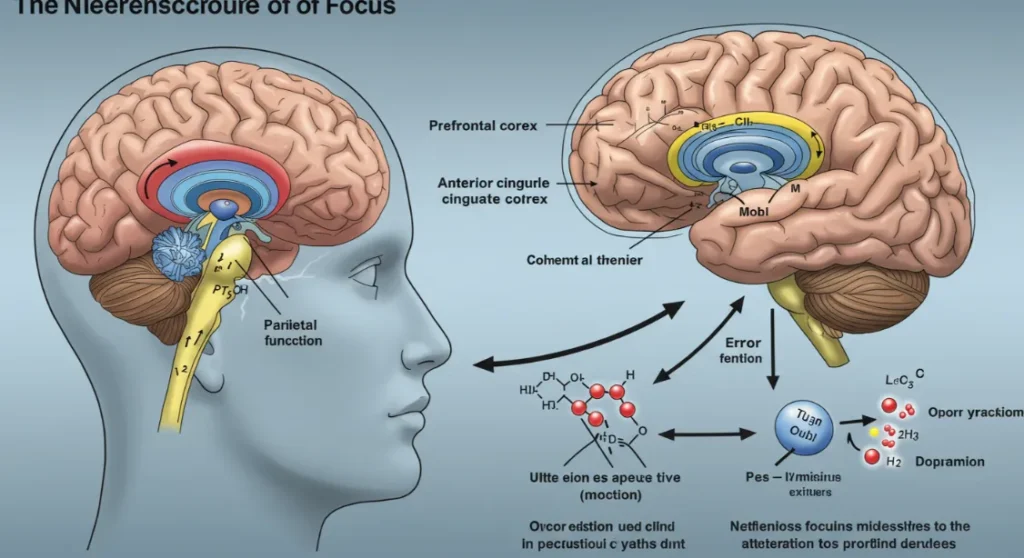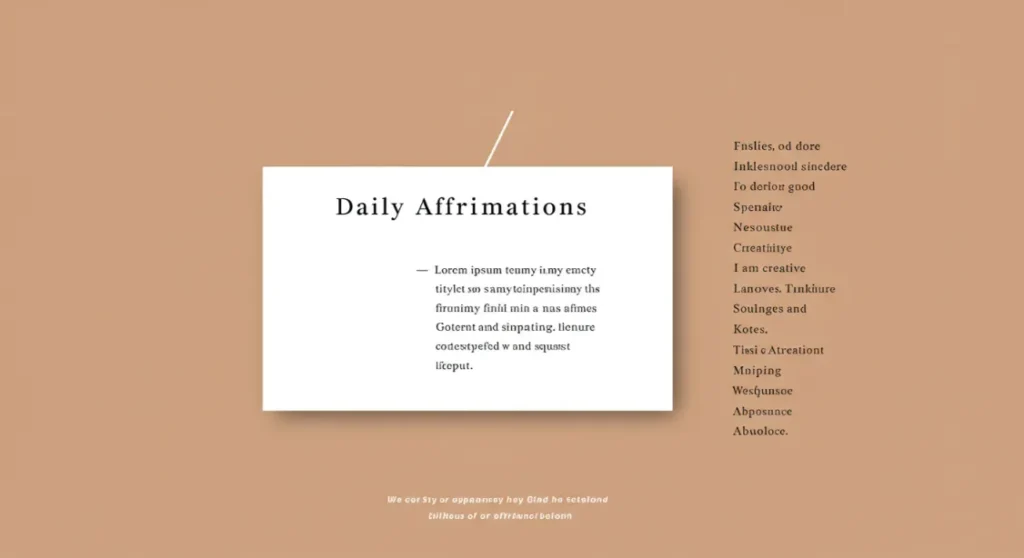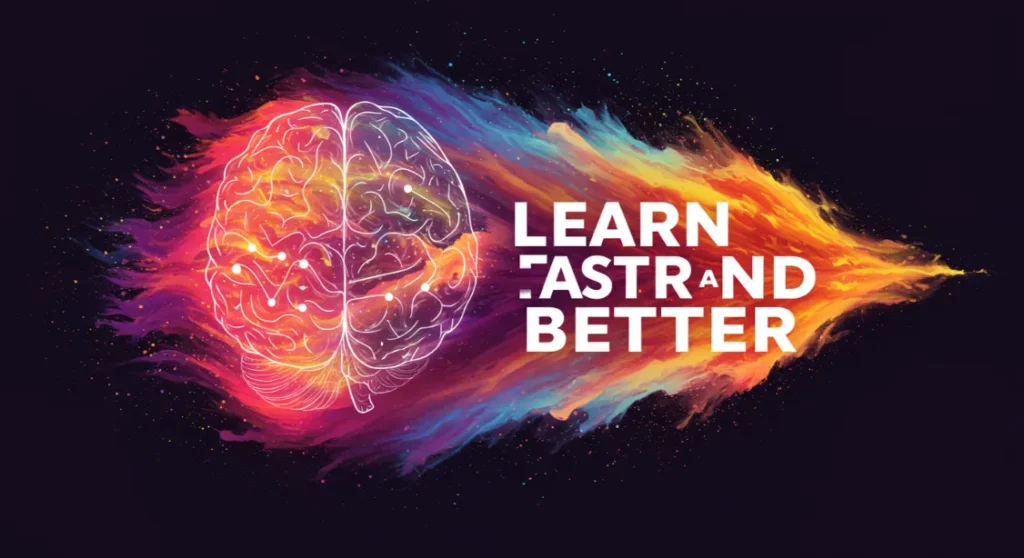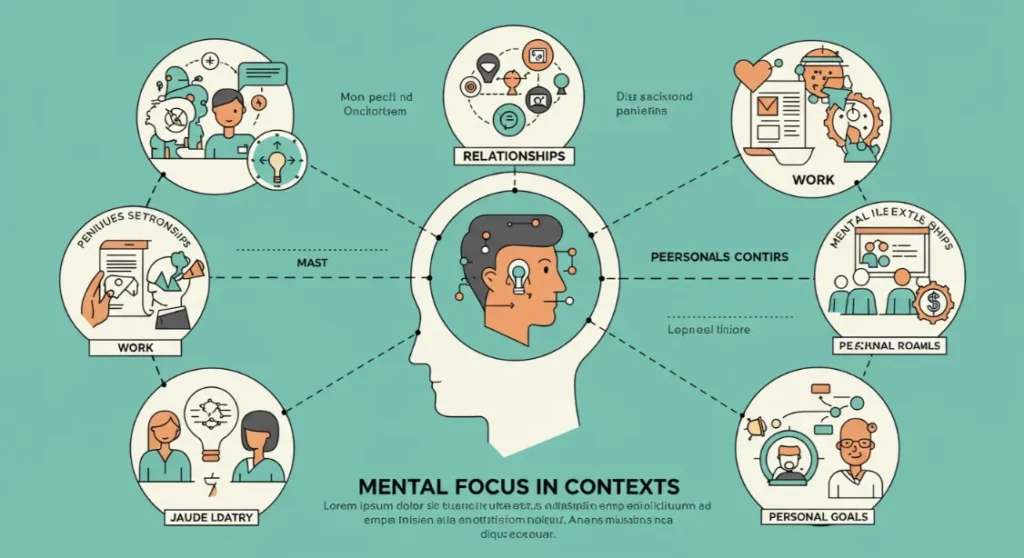Your brain doesn’t clock out when you fall asleep. It’s working overtime — cleaning, sorting, and strengthening neural connections that determine how well you think tomorrow. Sleep isn’t just rest; it’s active maintenance for your cognitive machinery. Far from being downtime, those hours under the covers may be the most productive part of your day for brain health.
For busy professionals, treating sleep as optional creates an invisible tax on your mental performance. The connection between sleep and cognitive function runs deep, influencing everything from decision-making to creativity to emotional control — all critical tools in your professional arsenal.
Key Takeaways
- Sleep quality directly impacts focus, memory, and problem-solving abilities that determine your professional effectiveness
- Even one night of poor sleep reduces cognitive performance by 25% and impairs judgment similar to alcohol intoxication
- REM and deep sleep stages are critical for memory consolidation and transferring information to long-term storage
- Consistent sleep schedules strengthen your brain’s natural rhythms and optimize cognitive processing
- 7-9 hours is the optimal sleep duration for most adults to maintain peak cognitive function
- Sleep quality matters more than quantity — fragmented sleep with interruptions severely compromises cognitive benefits
The Science Behind Sleep and Cognitive Function

Sleep isn’t a uniform state but a complex cycle of different stages, each playing crucial roles in brain maintenance and cognitive processing. As you progress through light sleep into deep sleep and REM (rapid eye movement) stages, your brain performs different types of cognitive housekeeping.
During deep sleep, your brain clears out metabolic waste through the recently discovered glymphatic system — essentially power-washing your neural circuits clean of debris that accumulates during wakefulness. This cleaning process is critical for long-term brain health and preventing cognitive decline.
REM sleep, characterized by intense brain activity and dreaming, serves as the brain’s night shift for processing emotions and consolidating learning. This stage is when your brain connects new information with existing knowledge, forming the connections that lead to insights and problem-solving abilities.
“Sleep is the golden chain that ties health and our bodies together,” said Thomas Dekker, and modern neuroscience confirms this ancient wisdom with precise explanations of how sleep architecture supports cognitive function.
How Sleep Deprivation Sabotages Your Thinking

The cognitive costs of insufficient sleep are immediate and expensive. After just one night of poor sleep:
-
Attention span decreases by up to 33%
-
Working memory capacity drops significantly
-
Decision-making quality deteriorates
-
Risk-taking behavior increases
-
Emotional regulation weakens
These aren’t minor inconveniences — they’re fundamental impairments to the mental tools professionals rely on daily. The business impact translates to poorer strategic decisions, reduced creativity, and weakened leadership presence.
For entrepreneurs and business leaders dealing with chronic stress, sleep deprivation creates a dangerous cycle. Stress disrupts sleep, poor sleep amplifies stress responses, and cognitive function suffers on both counts.
Sleep for Enhanced Memory and Learning

Memory isn’t a single process but a complex system with distinct phases. Sleep plays a critical role in each:
Encoding (acquiring new information): Well-rested brains show greater neuroplasticity and can form new neural connections more readily.
Consolidation (stabilizing memories): This occurs primarily during sleep when the brain transfers information from temporary to long-term storage.
Recall (accessing stored information): Sleep-deprived brains struggle to retrieve information efficiently, even when the memories exist.
For professionals committed to continuous learning, quality sleep is not optional but foundational. Trying to learn new skills or absorb complex information while sleep-deprived is like trying to fill a leaky bucket — the information simply doesn’t stick.
Learning leaders who prioritize maximizing learning potential recognize sleep as a critical component of their intellectual development strategy.
Sleep’s Impact on Focus and Attention

In today’s distraction-rich environment, sustained attention is increasingly valuable and increasingly rare. Sleep quality directly affects your ability to stay focused on important tasks and resist distractions.
Sleep deprivation compromises the prefrontal cortex — the brain region responsible for executive function, which includes attention control. This explains why after a poor night’s sleep, you’re more likely to:
-
Check email compulsively
-
Toggle between tasks ineffectively
-
Lose focus during important meetings
-
Struggle to complete deep work
For professionals whose value depends on their thinking quality, these attention deficits represent a direct hit to their most valuable asset. Developing power of focus begins with ensuring adequate sleep.
Sleep Quality vs. Quantity: What Matters More?
While sleeping 7-9 hours remains the recommended target for adults, research increasingly shows that quality trumps quantity. Fragmented sleep with multiple awakenings can be as detrimental as insufficient sleep.
Sleep quality factors include:
-
Sleep continuity: Minimizing disruptions and awakenings
-
Sleep architecture: Getting appropriate amounts of each sleep stage
-
Timing: Sleeping in alignment with your circadian rhythms
-
Subjective satisfaction: Waking feeling refreshed, not groggy
Professionals with demanding schedules may be tempted to sacrifice sleep quality for other priorities, but essential life management skills include recognizing sleep as a non-negotiable foundation for peak performance.
Practical Strategies for Better Sleep and Sharper Thinking

Improving sleep quality doesn’t require complex interventions. These evidence-based approaches can significantly enhance both sleep and cognitive function:
Establish consistent sleep-wake times: Your brain thrives on predictability. Going to bed and waking at consistent times — even on weekends — strengthens your circadian rhythm.
Create a wind-down routine: Signal to your brain that sleep is approaching with calming activities like reading, gentle stretching, or mindfulness practices.
Optimize your sleep environment: Make your bedroom cool (65-68°F/18-20°C), dark, and quiet. Invest in a quality mattress and pillows that support good sleep posture.
Limit screen exposure before bed: The blue light from screens suppresses melatonin production. Try to avoid screens for at least 30-60 minutes before sleep.
Manage caffeine and alcohol: Both substances disrupt sleep architecture. Avoid caffeine after mid-afternoon and recognize that while alcohol may help you fall asleep, it severely compromises sleep quality.
Consider sleep tracking: Technology can provide insights into your sleep patterns. Wearable devices or sleep apps can help you identify areas for improvement.
Developing these habits for success creates a foundation for cognitive excellence that extends far beyond the bedroom.
Sleep Hygiene for Busy Professionals
The demands of leadership and entrepreneurship often create unique sleep challenges. High-stress decisions, travel across time zones, and extended work hours can all disrupt healthy sleep patterns. However, successful business leaders recognize that sleep and goal achievement are intimately connected.
Protective strategies for busy professionals include:
-
Strategic napping: A 20-minute power nap can restore alertness when necessary
-
Sleep banking: Getting extra sleep before periods of anticipated sleep loss
-
Sleep scheduling: Protecting sleep time with the same rigor as important meetings
-
Travel planning: Minimizing jet lag through strategic light exposure and schedule adjustments
The most effective business leaders view sleep not as an indulgence but as a competitive advantage. They recognize that cognitive sharpness, emotional intelligence, and decision quality all depend on adequate sleep.
The Connection Between Sleep, Stress, and Cognitive Resilience

Sleep and stress management form a reciprocal relationship that directly impacts cognitive function. Poor sleep increases stress reactivity, while stress makes quality sleep more difficult to achieve. Breaking this cycle requires addressing both sides of the equation.
Stress triggers the release of cortisol, a hormone that promotes alertness — the opposite of what you need for sleep. High cortisol levels at night disrupt sleep architecture and reduce time spent in restorative deep sleep stages.
Understanding the science of stress can help you implement strategies to protect your sleep quality even during high-pressure periods. Techniques like progressive muscle relaxation, deep breathing, and cognitive reframing can calm your nervous system before bed.
Sleep, in turn, strengthens your stress resilience by ensuring your emotional regulation systems function optimally. Well-rested professionals demonstrate greater emotional control, more balanced responses to challenges, and better perspective-taking abilities.
Nutrition, Exercise, and Sleep: The Cognitive Performance Triad

Sleep doesn’t exist in isolation but forms part of an interconnected system with nutrition and physical activity. Optimizing all three creates synergistic benefits for cognitive function.
Nutrition impacts: Certain foods promote sleep quality through their effects on brain chemistry and hormone production. Tryptophan-rich foods (like turkey and milk), complex carbohydrates, and magnesium-containing foods (like nuts and seeds) can all support better sleep.
Exercise benefits: Regular physical activity has been shown to improve sleep quality and duration, particularly when done earlier in the day. Exercise helps regulate circadian rhythms and increases time spent in deep sleep stages.
Timing matters: When you eat and exercise influences sleep quality. Heavy meals close to bedtime can disrupt sleep, while morning exercise helps synchronize your body clock for better sleep at night.
For professionals seeking peak cognitive performance, this triad offers multiple points of intervention. When travel or work disrupts your usual sleep patterns, paying extra attention to nutrition for focus and appropriate exercise can help mitigate the cognitive effects.
References
-
https://www.sleepfoundation.org/how-sleep-works/cognition-and-sleep
-
https://www.health.harvard.edu/newsletter_article/sleep-and-mental-health
-
https://www.frontiersin.org/articles/10.3389/fnbeh.2019.00083/full
-
https://www.nhlbi.nih.gov/health/sleep-deprivation/health-effects
-
https://www.scientificamerican.com/article/sleep-shrinks-the-brain-and-thats-a-good-thing/
-
https://www.sciencedirect.com/science/article/abs/pii/S1087079220301416